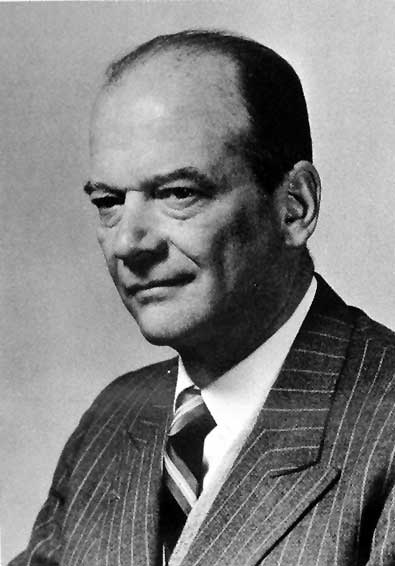| Profile | Major Works | Resources |
Gottfried von Haberler, 1900-1995


Austrian economic theorist.
Although taught by Wieser and von Mises and later a professor at Vienna, Gottfried Haberler was a product of the Austrian School but not exactly a doctrinaire follower of Austrian theory. In 1936, Haberler moved to Harvard where, together with Schumpeter and Leontief, he would teach the "golden generation" of Harvard economists.
Haberler's two major works - Theory of International Trade (1936) and Prosperity and Depression (1937) - were hailed as masterly tomes which, for the first time in either field, drew together numerous scattered ideas into a single theoretical treatment which was both encyclopaedic and rigorous.
Haberler's 1936 work on international trade theory was complemented by several articles which sought to place the theory of comparative advantage on both a positive and normative basis. Haberler's rewriting of the theory of comparative advantage in terms of opportunity cost, rather than real cost, led to a long debate with Jacob Viner.
Haberler's 1937 review of business cycle theory contains a sizzling critique of Keynes's General Theory, followed up by his equally unsympathetic 1946 and 1962 reviews of the same. He was an unreconstructed proponent of over-investment theories of the cycle, like that of Hayek.
Haberler was also addicted to policy. From the beginning, he was a constant advocate of both free trade and flexible exchange rates as well as arguing the Monetarist line on internal government policy. In 1971, Haberler left Harvard to become a resident scholar at the American Enterprise Institute together with his old schoolmate Fritz Machlup. His neo-liberal policy prescriptions became the hallmark of that institution.
|
Major works of Gottfried Haberler
|
|
HET
|
|
Resources on Gottfried von Haberler
|
All rights reserved, Gonšalo L. Fonseca
